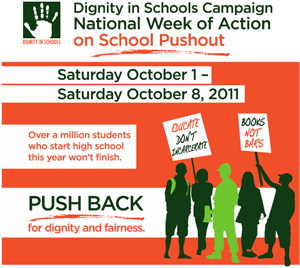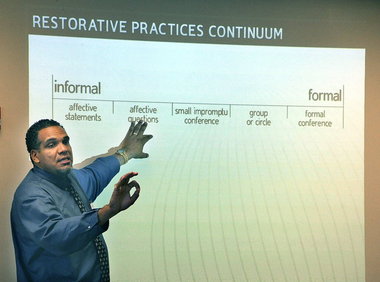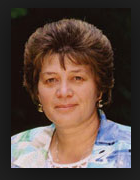News & Announcements
- Details
- Written by Joshua Wachtel
Terry Frieden of CNN reports on Tue October 4, 2011 titled, "Report Calls for Sharply Reducing Juvenile Incarceration":
Locking juvenile offenders behind bars is costly and largely ineffective, according to a report released Tuesday by an advocacy group that favors alternatives to youth detention.
The report by the Annie E. Casey Foundation examined data from the past four decades and found that removing juveniles from detention facilities in cash-strapped states has not caused crime rates to jump.
"Numerous states have closed facilities or lowered correctional populations, reaping significant savings for taxpayers without any measurable increase in youth crime," the report found.
- Details
- Written by Joshua Wachtel
I'd like to point out a new blog of the Colorado Restorative Justice Council, which is being coordinated by IIRP graduate Ben Emery. In a recent post, Emery asks, "Restorative Justice Training - Co-op Style?" He points out:
The State Coordinating Council on Restorative Justice is into its toddler years now. And when Senate Bill 11-1032, deemed the Restorative Justice Bill, landed on 22 district attorney desks this summer, those D.A.s no longer needed to Google restorative justice. Many have been using the approach for some years now.
... Among today's pressing issues facing the Colorado restorative justice community, which include consensus building around standards of practice as well as credentialing, is the question of sustainable training models.
- Details
- Written by Joshua Wachtel
The other day I posted about Dignity in Schools week of action on school pushout. You can find actions near you here.
Since we're based in Bethlehem, Pennsylvania I'd like to highlight this event in Philadelphia tomorrow - Thursday, October 6, 2011, from 5:30 to 8 pm: "Youth Speak Out Against Push Out": Story-gathering on School Push Out, at The United Way Building, 1709 Benjamin Franklin Parkway, Philadelphia, PA (between 17th & 18th).

They event page says, "Young people will come together to share their experiences with pushout, including issues such as school policing, zero tolerance policies, the impact of budget cuts, lack of violence prevention, youth incarceration, and more." Folks are invited to: "Come share your stories, hear from young people, and build youth power to challenge the many ways young people are pushed out of our schools!" It sounds like a great event.
- Details
- Written by Joshua Wachtel
Over the next week Dignity in Schools, with whom IIRP has collaborated in the past, now presents a week of action:
Throughout the week of October 1-8, 2011, thousands of parents, youth, and educators will participate in student-led actions and events in 27 cities to expose the school pushout crisis in our nation and advocate for the human right of every young person to a quality education and to be treated with dignity. The events and actions will include street theater, public forums, rallies, restorative justice trainings, and more.
The Dignity in Schools Campaign’s National Week of Action brings together organizations and individuals from 13 states to call for an end to zero tolerance policies, for the implementation of positive approaches to discipline, like restorative justice practices and positive behavior supports instead of relying solely on suspensions and expulsions, and for the passage of federal legislation that promotes positive school climates.
- Details
- Written by Joshua Wachtel
Lynette Parker has written up a nice concise piece about her recent trip to Bulgaria. Parker works with Prison Fellowship national organizations in the development of justice reform initiatives and programs. She writes:
The guiding philosophy behind the project is that children and their families are capable of solving their own problems and all those affected by a crime or harmful behaviour should be included in the response. It incorporates various services such as mentoring, support groups for parents of at-risk children, counselling, and restorative conferencing – both with victims and to address family issues.
Considering the role of the entire community in responding to the needs of at-risk youth, PF Bulgaria created a civil network of 16 different organisations and various individuals interested in working with young people. ... The idea is that positively involving community members and organisations in the lives of juveniles will create stronger connections and lead to a more restorative community.
Read the full piece, "Alternatives for Juveniles in Bulgaria," here
- Details
- Written by Joshua Wachtel
Update (Sept 30, 2011): Dates of the conference have been changed to November 7 - 10 to accommodate a scheduling conflict at the training site.

IIRP Canada offers its Fall Institute from November 7 - 10, 2011 in Port Hope, Ontario. IIRP conducts similar four-day events throughout the world. The first day is an introduction to the Restorative Practices Framework, the second a workshop on using circles effectively and the third and fourth days comprise a training to learn to facilitate restorative conferences. One of the nice things about this four-day event is that while it attracts many people who work in schools, from administrators to teachers and counselors, the concepts can easily be applied and adapted in a wide variety of settings, including residential facilities, community programs, workplaces and in work with families.
- Details
- Written by Joshua Wachtel
 RJC Launches Practitioners RegisterThis is exciting news from the UK – the creation of a register for restorative practitioners and the launching of a quality control structure. The Restorative Justice Council (RJC) "Practitioner Register" for the first time gives restorative practitioners professional recognition for their work. It has a very broad focus, open to practitioners in education, social care, criminal justice and community-based agencies as well as practitioners using these skills in their workplace. Based on the national occupational standards, the Practitioner Register for the first time provides a truly national framework for quality assurance for this field.
RJC Launches Practitioners RegisterThis is exciting news from the UK – the creation of a register for restorative practitioners and the launching of a quality control structure. The Restorative Justice Council (RJC) "Practitioner Register" for the first time gives restorative practitioners professional recognition for their work. It has a very broad focus, open to practitioners in education, social care, criminal justice and community-based agencies as well as practitioners using these skills in their workplace. Based on the national occupational standards, the Practitioner Register for the first time provides a truly national framework for quality assurance for this field.
Crispin Blunt, Secretary of State for Justice, speaking to practitioners at the launch event commented, "Practitioner registration is essential in building public confidence in restorative justice and providing anyone considering participation in restorative justice with a transparent check on whether the person working with them is qualified to do so." He added, "The public deserve the reassurance that this register will provide and as a society we need the best restorative practice that you have to offer."
- Details
- Written by John Bailie
 I want to let everyone know about two exciting events coming up this fall at the IIRP’s main campus in Bethlehem.
I want to let everyone know about two exciting events coming up this fall at the IIRP’s main campus in Bethlehem.
Our "Fall Intensive" is a four day event and is offered on two dates:
October, 17-20 or November, 14-17:
Click here for more info and to register.
If you want to learn more about restorative practices or get others excited about this new field one of the most powerful things you can do is to the see these practices in action in real life.
- Details
- Written by Joshua Wachtel
 Steve Korr, IIRP trainer and consultant, training staff and teachers at Bethlehem Area School District (from the Express-Times, photo by Lisa Massey)
Steve Korr, IIRP trainer and consultant, training staff and teachers at Bethlehem Area School District (from the Express-Times, photo by Lisa Massey)
Bethlehem Area School District, which serves the city in which IIRP graduate school is based in Pennsylvania, has begun implementing the Safer Saner Schools 2-year whole school change program.
Express-Times reporter Lisa Massey has this story about the initial trainings. Some excerpts:
High school teachers, bus drivers, secretaries, administrators and other support staff converged on Freedom High School last week for an intense day of training in the concept.
- Details
- Written by Joshua Wachtel
 Shannon Pakura, former Chief Social Worker of New ZealandAs I begin to work on a training resource manual about Family Group Decision Making (aka Family Group Conferencing), which will be a part in the growing library of small practical book on various aspects of restorative practices IIRP publishes, I'm finding a great deal of pleasure tapping in the IIRP on-line library for source material. I was so struck by a talk by Shannon Pakura, former Chief Social Worker of New Zealand, that I thought I'd share some of it here.
Shannon Pakura, former Chief Social Worker of New ZealandAs I begin to work on a training resource manual about Family Group Decision Making (aka Family Group Conferencing), which will be a part in the growing library of small practical book on various aspects of restorative practices IIRP publishes, I'm finding a great deal of pleasure tapping in the IIRP on-line library for source material. I was so struck by a talk by Shannon Pakura, former Chief Social Worker of New Zealand, that I thought I'd share some of it here.
She starts by saying, "Historians will probably reflect on New Zealand society in the 1970s and 1980s as a time of renaissance and revolution on a number of fronts." The family group conference was one fruit of this moment, and was a response to Maori raising concerns that their children were not being treated appropriately by state social services.

Restorative Works Year in Review 2024 (PDF)
All our donors are acknowledged annually in Restorative Works.
